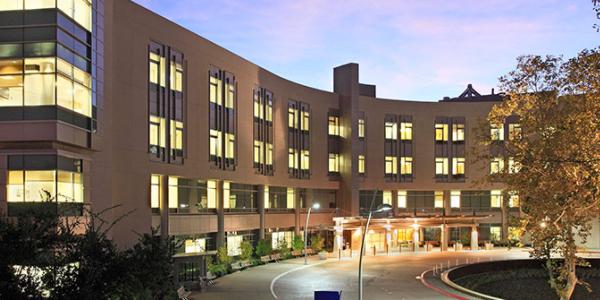
Mountain View, CA - October 6, 2014 - The American College of Surgeons National Surgical Quality Improvement Program (ACS NSQIP®) has recognized El Camino Hospital – Mountain View, as one of 44 ACS NSQIP participating hospitals that have achieved meritorious outcomes for surgical patient care. As a participant in ACS NSQIP, El Camino Hospital – Mountain View is required to track the outcomes of inpatient and outpatient surgical procedures and collect data that directs patient safety and the quality of surgical care improvements.
"Our goal with collecting and analyzing data for NQSIP is not only to drive our quality improvement efforts but to recognize trends and address any risks to ensure patient safety," said Eric Pifer, MD, Chief Medical Officer of El Camino Hospital. "This award is a testament to El Camino Hospital's commitment to providing high-quality surgical care while reducing complications and costs."
The ACS NSQIP recognition program commends a select group of hospitals for achieving meritorious outcome performances related to patient management in eight clinical areas:
- Mortality
- Unplanned intubation
- Ventilator > 48 hours
- Renal failure
- Cardiac incidents (cardiac arrest and myocardial infarction)
- Respiratory (pneumonia)
- SSI (surgical site infections-superficial and deep incisional and organ-space SSIs)
- Urinary tract infection
The 44 hospitals commended achieved the distinction based on their outstanding composite quality score in the eight areas listed above. Risk-adjusted data from the July 2014 ACS NSQIP Semiannual Report, which presents data from the 2013 calendar year, were used to determine which hospitals demonstrated meritorious outcomes.
ACS NSQIP is the only nationally validated quality improvement program that measures and enhances the care of surgical patients. This program measures the actual surgical results 30 days postoperatively as well as risk adjusts patient characteristics to compensate for differences among patient populations and acuity levels. The goal of ACS NSQIP is to reduce surgical morbidity (infection or illness related to a surgical procedure) and surgical mortality (death related to a surgical procedure) and to provide a firm foundation for surgeons to apply what is known as the "best scientific evidence" to the practice of surgery. Furthermore, when adverse effects from surgical procedures are reduced and/or eliminated, a reduction in health care costs follows. ACS NSQIP is a major program of the American College of Surgeons and is currently used in over 550 hospitals.
The American College of Surgeons is a scientific and educational organization of surgeons that was founded in 1913 to raise the standards of surgical practice and to improve the care of the surgical patient. The College is dedicated to the ethical and competent practice of surgery. Its achievements have significantly influenced the course of scientific surgery in America and have established it as an important advocate for all surgical patients. The College has more than 74,000 members and it is the largest organization of surgeons in the world.